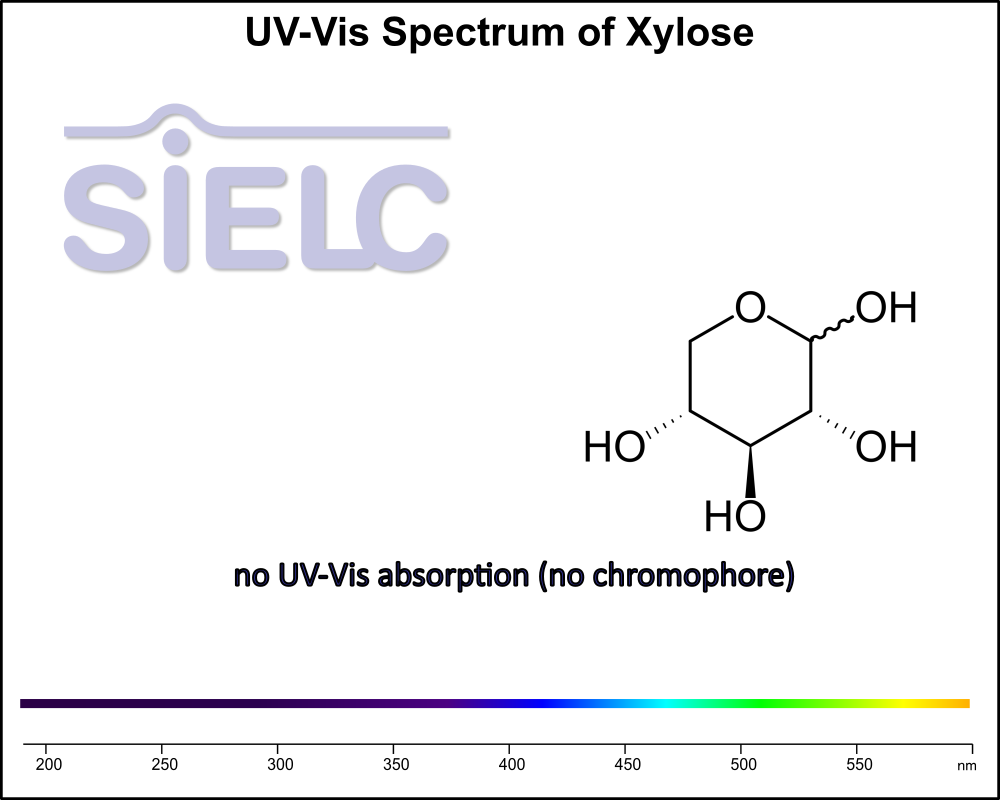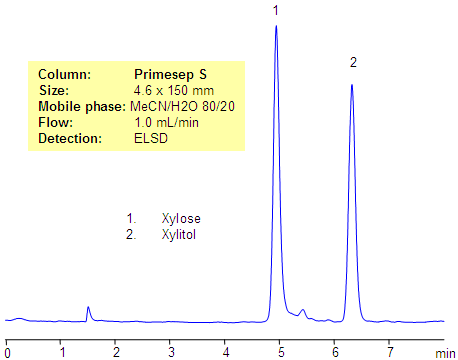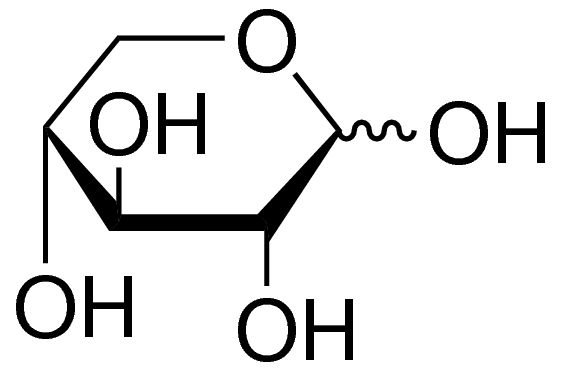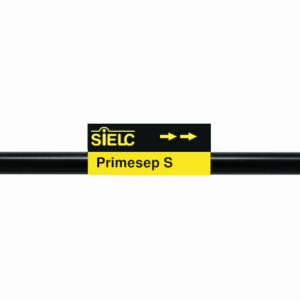| CAS Number | 58-86-6 |
|---|---|
| Molecular Formula | C5H10O5 |
| Molecular Weight | 150.130 |
| InChI Key | SRBFZHDQGSBBOR-IOVATXLUSA-N |
| LogP | -1.98 |
| Synonyms |
|
Applications:
Uv-Vis Spectrum of Xylose
February 3, 2026

If you are looking for optimized HPLC method to analyze Xylose check our HPLC Applications library
For optimal results in HPLC analysis, it is recommended to measure absorbance at a wavelength that matches the absorption maximum of the compound(s) being analyzed. The UV spectrum shown can assist in selecting an appropriate wavelength for your analysis. Please note that certain mobile phases and buffers may block wavelengths below 230 nm, rendering absorbance measurement at these wavelengths ineffective. If detection below 230 nm is required, it is recommended to use acetonitrile and water as low UV-transparent mobile phases, with phosphoric acid and its salts, sulfuric acid, and TFA as buffers.
For some compounds, the UV-Vis Spectrum is affected by the pH of the mobile phase. The spectra presented here are measured with an acidic mobile phase that has a pH of 3 or lower.

HPLC Analysis on Xylose and Xylitol on Primesep S Column
July 3, 2013

Xylose is a monosaccharide which can be found in wood. Xylitol is a sugar-like, open chain polyalcohol. Xylitol and xylose were separated on the Primesep S HILIC/mixed-mode column. Both compounds are retained by a single HILIC mechanism. This method is compatible with ELSD, CAD, and RI detection and can be used for analysis of various monosaccharides in complex mixtures.
| Column | Primesep S, 4.6×150 mm, 5 µm, 100A |
| Mobile Phase | MeCN/H2O – 80/20% |
| Buffer | AmFm pH 3.0- 10 mM |
| Flow Rate | 1.0 ml/min |
| Detection | ELSD |
| Class of Compounds |
Sugar, Hydrophilic, Ionizable |
| Analyzing Compounds | Xylose, Xylitol |
Application Column
Primesep S
The Primesep family of mixed-mode columns offers a wide variety of stationary phases, boasting unprecedented selectivity in the separation of a broad array of chemical compounds across multiple applications. Corresponding Primesep guard columns, available with all stationary phases, do not require holders. SIELC provides a method development service available to all customers. Inquire about our specially-tailored custom LC-phases for specific separations.
Select optionsXylose



